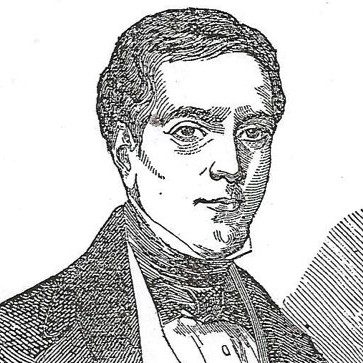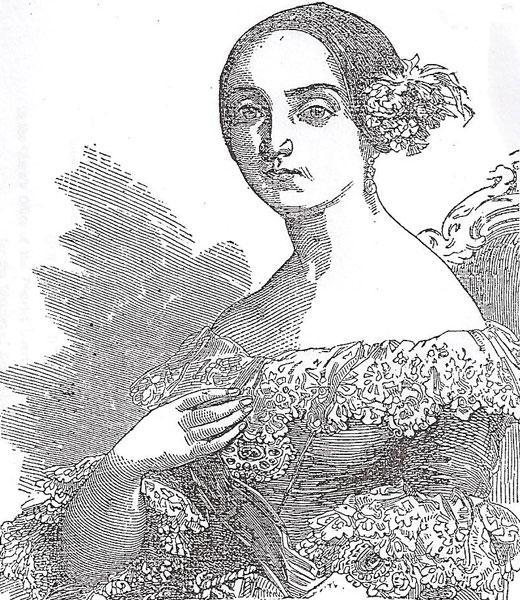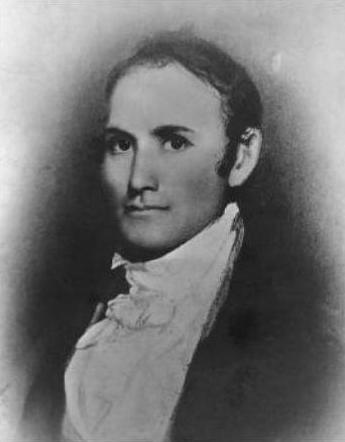
1802 - 1826
Jereboam Orville Beauchamp
Summary
Name:
Years Active:
1825Birth:
September 06, 1802Status:
ExecutedClass:
MurdererVictims:
1Method:
StabbingDeath:
July 07, 1826Nationality:
USA
1802 - 1826
Jereboam Orville Beauchamp
Summary: Murderer
Name:
Jereboam Orville BeauchampStatus:
ExecutedVictims:
1Method:
StabbingNationality:
USABirth:
September 06, 1802Death:
July 07, 1826Years Active:
1825bio
Jereboam Orville Beauchamp was born on September 6, 1802, in what is now Simpson County, Kentucky. He was the second son of Thomas and Sally Beauchamp. His parents were deeply religious, and he was named after a paternal uncle who served as a state senator. Jereboam was educated at Dr. Benjamin Thurston's academy in nearby Barren County, Kentucky until he was sixteen.
Realizing that his father struggled to provide for the family, Jereboam sought work as a shopkeeper to help pay for his education. This job took up much of his time, but he managed to save some money. Originally, he was recommended by his teacher, Thurston, to become a schoolteacher himself. After earning enough money, he returned to school, later taking on the role of an usher at the academy.
By the age of eighteen, Jereboam completed his preparatory studies. He often observed lawyers practicing in the towns of Glasgow and Bowling Green, which inspired him to pursue a legal career. He admired a young lawyer named Solomon P. Sharp in Bowling Green and hoped to study under him. However, in 1820, Jereboam became disillusioned when rumors began circulating that Sharp had fathered an illegitimate child with Anna Cooke, a local planter's daughter. Sharp denied these allegations, but the public at the time seemed to favor him.
After becoming ill, Beauchamp moved back to his father’s plantation in Simpson County. During his recovery, he learned about Anna Cooke, who had retreated to her mother’s plantation after her public disgrace. Intrigued, he decided to meet her. Although Cooke initially rejected his advances, Jereboam continued to visit her under the pretense of borrowing books from her library. Eventually, they struck up a friendship, and in 1821, they began courting.
When Jereboam proposed to Anna, she consented to marry him only if he agreed to kill Solomon Sharp. Beauchamp agreed to this condition and left for Frankfort to confront Sharp, who was then serving as attorney general. His early attempts to challenge Sharp to a duel were unsuccessful.
Following these events, Beauchamp returned to Bowling Green, where he finished his legal studies. He was admitted to the bar in April 1823 and married Anna Cooke in June 1824.
murder story
On November 7, 1825, Jereboam Orville Beauchamp planned to murder Solomon P. Sharp. Beauchamp believed that Sharp had dishonored his wife, Anna Cooke, by fathering her illegitimate child. Beauchamp had sold his property, arranged to move to Missouri, and prepared for the murder.

Beauchamp arrived in Frankfort, where he found Sharp’s home and waited for him to return. Disguised and armed with a dagger, Beauchamp entered Sharp's home at around 2 a.m. When Sharp opened the door, Beauchamp revealed his identity. Upon realizing who it was, Sharp fell to his knees. Beauchamp then attacked him, stabbing him in the heart. Sharp died quickly from the wound.
After the murder, Beauchamp fled to the nearby river to dispose of his disguise. The next morning, he feigned shock at the news of Sharp's murder and returned to Bowling Green. However, he was soon arrested when a posse from Frankfort arrived and accused him of the crime.

Beauchamp was tried for the murder in March 1826. While there was no physical evidence linking him to the crime, several witnesses testified against him. Eliza Sharp, the widow of Solomon Sharp, recognized Beauchamp's voice as that of the murderer. Despite his claims of innocence, he was convicted and sentenced to death by hanging.
While awaiting execution, Beauchamp attempted to secure a pardon and wrote a confession accusing another man of lying about their past interactions. However, his efforts were unsuccessful. On July 7, 1826, the morning of his execution, Beauchamp and Anna tried to take their own lives by stabbing themselves. Anna was injured, while Beauchamp was too weak to walk.
As he was taken to the gallows, Beauchamp asked to see Anna one last time. He was allowed to stay with her until she passed away. Beauchamp was executed later that day. His father arranged for him and Anna to be buried together in a single coffin, as they had wished.